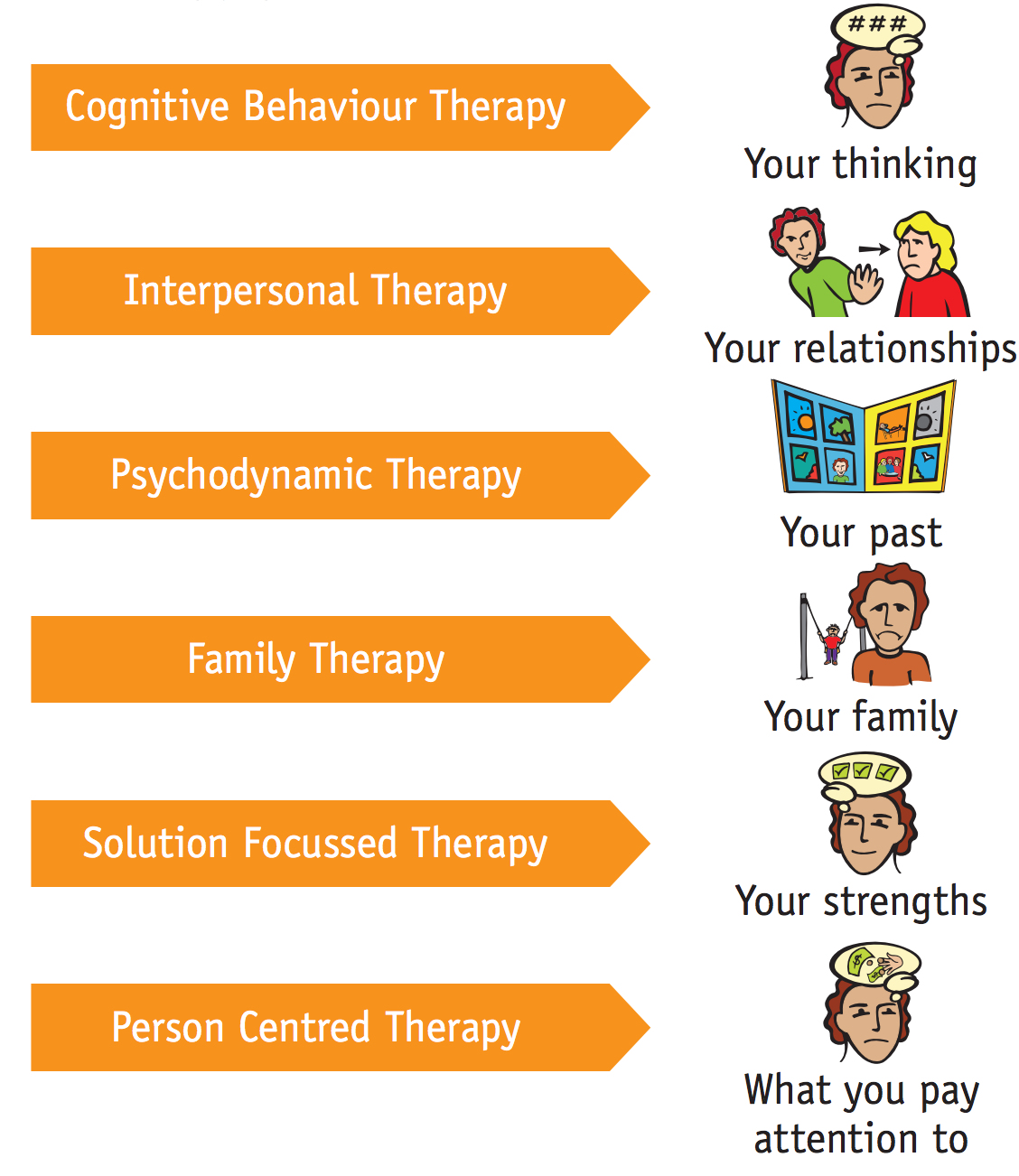Checking out the Advantages of Virtual Therapy in Modern Mental Health Care
The rise of virtual therapy marks a significant change in psychological health treatment. It supplies boosted access, enabling individuals from diverse histories to look for assistance without geographical restrictions. Versatility in organizing fits varying way of livings, while the convenience of home can foster openness. Nonetheless, the ramifications of these modifications expand past plain ease. The progressing landscape of therapy increases important inquiries concerning its long-term effects on client interaction and therapy end results.
Improved Ease of access for All
Traditional therapy typically presents obstacles such as geographical area and organizing disputes, virtual therapy greatly enhances ease of access for people looking for psychological health assistance. By eliminating the demand for physical travel, virtual therapy permits clients from remote areas or those with mobility challenges to attach with qualified professionals. This setting of therapy can reach underserved populaces that might lack neighborhood mental wellness resources, consequently resolving variations in access to care. Additionally, virtual platforms can provide to diverse requirements, using services in multiple languages and accommodating different cultural backgrounds. Customers can involve with a more comprehensive variety of professionals, giving them with options that align with their certain needs and choices. This raised availability cultivates a more inclusive atmosphere, permitting individuals to seek aid without the preconception commonly connected with in-person visits. Overall, virtual therapy stands for a considerable development in making psychological healthcare a lot more accessible to all.
Adaptability in Organizing Procedure

As virtual therapy continues to obtain traction, its intrinsic versatility in scheduling sessions confirms to be a substantial advantage for lots of people. Unlike conventional in-person therapy, virtual therapy enables customers to choose session times that best fit their individual and professional dedications. This flexibility suits those with requiring work routines, family members obligations, or various other dedications that can make going to physical appointments testing.
Clients can easily reschedule or change their sessions as required, lowering the anxiety connected with inflexible visit systems. The schedule of numerous time ports throughout the week, including evenings and weekends, further improves accessibility. This versatility not only motivates uniformity in participation but likewise cultivates a better commitment to the restorative procedure. Inevitably, the versatility in scheduling sessions stands for a transformative change in psychological healthcare, equipping individuals to prioritize their wellness without giving up various other facets of their lives.
Convenience of a Familiar Environment
The convenience of an acquainted environment considerably boosts the efficiency of virtual therapy for numerous clients. Engaging in therapy from the safety of their very own homes enables people to really feel more secure, lowering anxiety that may accompany traditional in-person sessions. This experience can help with open communication, enabling clients to express their ideas and sensations more freely.
The presence of personal products and the capacity to manage their surroundings can contribute to a feeling of security and leisure. Customers typically report that remaining in a comfy space permits them to concentrate extra on the therapeutic procedure instead of the establishing itself.
Additionally, the informal nature of virtual sessions can aid liquify obstacles that may exist in a typical workplace setting, promoting a deeper connection with specialists. Generally, the convenience of familiar surroundings plays a necessary duty in enhancing the restorative experience and efficiency for many individuals looking for mental health and wellness assistance.
Broader Series Of Healing Alternatives
A wider range of restorative options ends up being readily available with virtual therapy, allowing customers to accessibility numerous modalities that may not be feasible in traditional settings. This adaptability enables people to explore diverse methods such as cognitive-behavioral therapy, mindfulness practices, art therapy, and also specialized treatments like trauma-informed care or dialectical behavior therapy.
Customers can select from a wider spectrum of specialists, consisting of those who specialize in particular niche locations or particular populations, improving the likelihood of finding an appropriate match. Virtual platforms usually supply accessibility to group therapy sessions, assistance communities, and workshops that might be geographically not available otherwise.
This range encourages clients to involve in their recovery process according to their one-of-a-kind choices and requirements, potentially increasing motivation and commitment to treatment. Because of this, the landscape of psychological healthcare ends up being more inclusive and versatile, satisfying a broader variety of individual experiences and difficulties.
Lowered Preconception Bordering Therapy
Accessing therapy via virtual platforms adds to a considerable reduction in the stigma generally connected with mental wellness care. By giving a discreet and private setting, virtual therapy allows individuals to look for assistance without the fear of being evaluated or identified. This privacy attract those that might or else wait to go after in-person therapy because of societal understandings bordering mental health.
As the frequency of virtual therapy rises, it normalizes the discussion around mental health, making it a much more appropriate component of day-to-day life. People usually feel a lot more comfortable reviewing their experiences on the internet, advertising openness and decreasing feelings of seclusion. The ease of access of these solutions additionally encourages a broader demographic to engage with psychological health and wellness sources, promoting a society of assistance instead of embarassment. Ultimately, the rise of virtual therapy plays an essential role in reshaping mindsets towards looking for aid, contributing to an extra accepting culture pertaining to psychological health difficulties.
Cost-Effectiveness and Cost

Reduced Session Expenses
Many people seeking psychological wellness assistance locate that virtual therapy considerably reduces session costs contrasted to conventional in-person alternatives. The elimination of traveling expenditures and pause work typically adds to overall cost savings. In addition, lots of virtual therapists provide affordable prices because of click here lower overhanging prices related to maintaining a physical office. This change in expense permits clients to gain access to top quality mental health and wellness services without the economic strain that may feature traditional therapy. For many, this cost allows extra regular sessions, which can enhance treatment end results. Because of this, virtual therapy not only equalizes accessibility to psychological healthcare however also offers a lasting monetary model that lines up with customers' budget plans, making psychological health and wellness assistance more obtainable for a wider audience.
Expanded Gain Access To Options
While typical therapy typically presents logistical obstacles, virtual therapy substantially expands gain access to alternatives for people seeking mental health and wellness treatment. By removing the need for traveling and permitting versatile scheduling, virtual therapy suits varied lifestyles and dedications. This ease of access is particularly helpful for those in remote areas or with movement difficulties. Additionally, the cost-effectiveness of virtual therapy decreases financial strain, making mental health solutions a lot more reachable. Lots of systems offer tiered rates or sliding scale charges, advertising cost. Insurer significantly identify virtual therapy, further boosting its monetary access. On the whole, virtual therapy not only broadens the range of that can obtain care but likewise addresses economic obstacles, making mental health support extra comprehensive and attainable for all.
Enhanced Connection of Treatment
Enhanced connection of care arises as a substantial advantage of virtual therapy in modern-day mental health care. This approach enables individuals to keep constant communication with their specialists, regardless of geographical obstacles or scheduling disputes. relationship therapy. The adaptability of virtual sessions promotes normal check-ins, which are important for keeping an eye on progress and adjusting therapy prepares as essential
Furthermore, digital health and wellness documents and telehealth systems help with seamless information sharing among care carriers. This interconnectedness ensures that all professionals associated with an individual's treatment are upgraded on treatment developments, bring about more coordinated and efficient interventions.
People commonly experience reduced anxiety and increased interaction as a result of the ease of accessing therapy from familiar atmospheres. Such access boosts adherence to therapy regimens, ultimately improving outcomes - couples counselling. To summarize, virtual therapy not only bridges gaps in mental wellness services yet additionally fortifies the connection of treatment, an essential element of successful restorative relationships
Regularly Asked Concerns
Just How Does Virtual Therapy Ensure Confidentiality and Personal Privacy for Customers?
The present concern addresses the steps virtual therapy employs to shield client privacy. Utilizing encrypted systems, secure logins, and compliance with laws like HIPAA, virtual therapy guarantees that sensitive information stays personal and inaccessible to unauthorized people.
Can I Switch Therapists Conveniently in Virtual Therapy?
Switching over therapists in virtual therapy is generally uncomplicated. Clients can communicate their need for a modification through the system, permitting for flexibility in discovering a better match without the logistical challenges of in-person appointments.
What Modern technology Do I Need for Virtual Therapy Procedure?
To participate in virtual therapy sessions, a specific usually requires a dependable internet link, a computer system or smart device with a camera and microphone, and access to a secure video conferencing platform defined by their specialist.

Are Virtual Therapy Sessions as Effective as In-Person Sessions?
Recent research studies suggest that virtual therapy sessions can be similarly efficient as in-person sessions, relying on the individual's choices and scenarios. Aspects such as convenience and ease of access may improve the general therapeutic experience for some customers.
What Should I Do if I Experience Technical Issues During a Session?
If technical issues emerge throughout a session, one need to steadly communicate the issue to the therapist, effort to reconnect, or switch to a back-up technique. Patience and versatility are crucial in handling these disruptions.